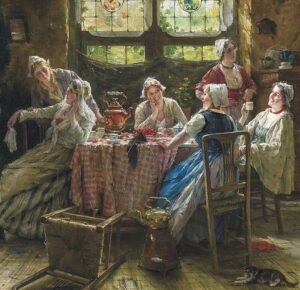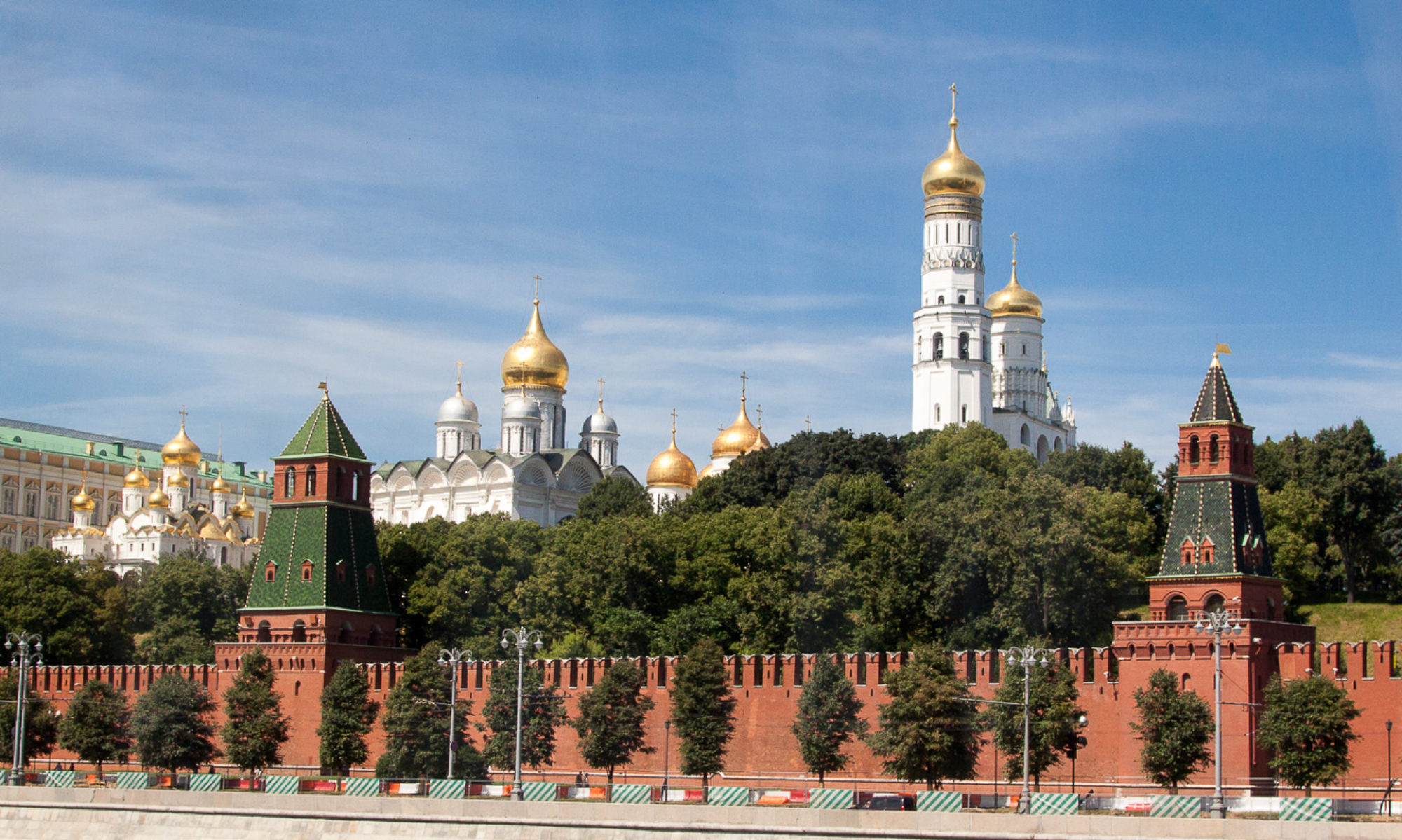By Oleg Vereshyagin
Hans, 11 years old, German: I don’t want to be “the German!”

If anyone remembers, there was a TV program in soviet times called They Chose USSR. It was about people from capitalist countries who for whatever reason moved to “the correct” side of the Iron Curtain. The program was most certainly buried with the beginning of perestroika [perestroika means restructure, rebuild in Russian – RV], for it became fashionable to talk about the Kramorovs and Nurievs, who went West in hopes of high praises of their enormous talents and were happily creative there. This was hard to grasp for the rest of us, miserable soviet red necks. Actually, the flow of people was mutual; more than that – after a while the “from there to here” flow was GREATER. This thought will seem strange and unusual for our counterparts, poisoned with Ogoneks [liberal, anti-patriotic periodicals – RV] and such, even those more patriotic.
Yes. More people were coming from “there” to “here.” There simply wasn’t as much noise about it, since these were regular people, not “the elite” who lived off the attention their beloved selves received.
But even more strange for many is the idea that with the fall of the Soviet Union the “here” flow never ran dry. It decreased, but didn’t stop. In the last decade, it has gotten stronger.
This resurgence is not connected, of course, to the wise ruling of Pu and Me [disrespectful for Putin – President of Russia and Medvedev – Prime Minister of Russia. – RV]. Nothing of the sort. We are also not talking about the Chechen clowning of Gérard Depardieu. People, normal people are simply running away from their insane pederast governments, from the mass ratting and snitching, fleecing, soulless living – to the “Russian free lands,” where it is easy to just vanish in the crowd and live according the one’s values without being ruled by some municipality with yet another tolerant loser at the helm.
Many of those who come “here” do so out of fear for their children’s future. They want to be sure their child is not going to be hooked on drugs, subjected to forced promiscuity in the classroom, turned into a hysterical lazy person, won’t simply be taken away from the parents, who – against all odds – want to raise their child as a human being.
I will tell you a little about some of these people, rather about their children and the situations, sometimes comical, they get into once here. I won’t give you any places or names. I won’t even elaborate on the details of these people’s stories. An interested reader will figure things out. But these stories are real. Many of them were relayed to me by witnesses, many by the participants.
All of the young people’s names have been changed.
***
Hans, 11 years old, German:
I don’t want to be “the German!”
The game of war in itself made me cringe and even feel frightened. Out of the window of our new house I watched Russian children being completely absorbed with it in the large orchard on the outskirts of town. It seemed wild to me that 10-12 year old boys can play a game of killing with such enthusiasm. I even talked about it with Hans’s classroom teacher. To my complete surprise, after attentively listening to all I had to say, she asked me if Hans played any computer games with shooting in them and if I was aware of what was being displayed on screen at the time. Somewhat bewildered and confused, I didn’t know what to say. At home, I mean in Germany, I was not too happy with my son would spent so much time playing computer games, but at least he was home, and I wasn’t worried about him being out in the streets.
Besides, computer games are not a reality, whereas this street game is played with real people. I even wanted to say this out loud, but all of a sudden I felt I was being so wrong that I couldn’t put it in words. The teacher was looking at me with intense attention and kindness and said in a soft sincere voice, “Listen, this may sound surprising and unusual for you, but please try to understand. Your son is not you; he is a boy. If you let him be the way the children are here – nothing bad will happen to him, it just may seem a bit unusual to you. All the really bad things, I assure you, are the same in Russia and Germany alike.” I deemed these words wise and left feeling slightly better.
My son had never before played such war games or even held a toy weapon in his hands. I have to say Hans rarely asked for presents and had always been satisfied with what I bought for him, or what he would buy himself with his own money. But now he had persistently been asking me for a toy machine gun, saying that he doesn’t like to play with other people’s ones, even though he likes the boy who loans Hans his gun. As soon as he named the boy I somehow immediately disliked him. I didn’t want to refuse, especially after I spent some time over calculations and realized something stunning: life in Russia is much less expensive compared to back home, it is just unusual in appearance, somewhat carefree and not so polished.
During the May holidays (they have several of those over here) we went shopping and Hans’s new friend went along. I was forced to change my opinion about him, admittedly not right away. He came barefoot, and being in public with the two of them made me tight like a string: every minute I expected to be stopped by some authority and I would have to explain that I was not the mother of this boy. In spite of his appearance, the boy seemed very nice and well-bred. Besides, I saw many children outside dressed in a similar manner in Australia.
The purchase was being made expertly, discussing the weapon in details and even trying it out. I felt like I was the gang leader. At last we bought some pistol (the boys had told me what it was, but I forgot) and a machine gun just like the ones our German solders had during this past world war. My son was now armed and could take part in the battles.
Later I learned how much of a frustration these battles were for him initially. You see, to play this game, Russian children are divided into the teams that are traditionally named after countries Russian people had to fight when defending themselves. Of course, it is cool and honorable to be “the Russians.” A fight may break out while the teams are being formed. After Hans brought his new weapon of this special character, he was immediately sent to “the German” team, meaning the German Nazis, which he of course didn’t want to be a part of.
He was argued with, quite reasonably as far as logic goes, “Why don’t you want to be there? You are German, aren’t you?!” “But I am not that kind of German!” my poor boy would cry. He had already seen by then some very unpleasant movies, and while I understood that the stories were true and we were indeed at fault, it was very hard to explain to a boy of 11 years old. My son outright refused to be “that kind of German.”
Hans – and the whole game, really – was rescued by that boy, my son’s new friend. I quote what my son had said to be his very words verbatim, “You know what then?! Let’s all fight against Americans!”
It is a country of absolute madness. But I like it here, and so does my boy.
Russian source: http://samlib.ru/w/wereshagin_o_n/ovr.shtml Link active as of January 17, 2017. RV
